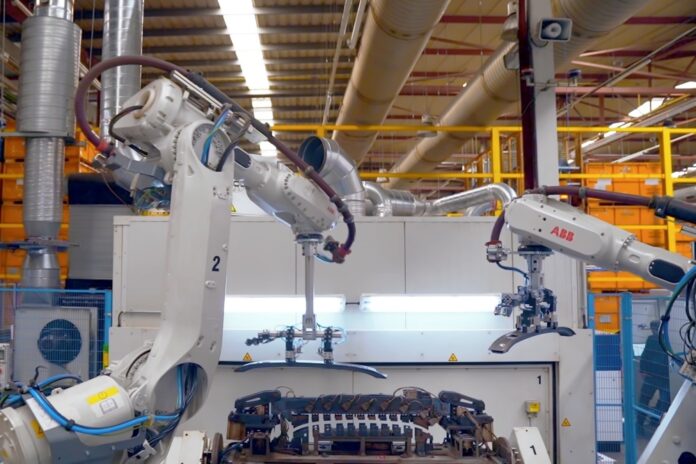The operator has worked with Barcelona-based Gestamp, which designs, develops and manufactures automotive components.
Telefónica says this is the first factory digitalised with 5G for industrial processes in Spain: industrial machinery is connected by 5G and uses edge computing to process the data in real time.
For example, Telefónica connected the physical elements of the plant, such as the robotic welding cells, via 5G to capture and process data from the machinery in real time while in operation via a virtual data centre at various locations that are the edge.
It uses infrastructure located in Barcelona, very close to the Gestamp factory.
Digital twins
The process is completed with the connection of the physical elements using a digital twin – a virtual model of the factory processes, fed with the data via 5G, to carry out simulations and optimise the decision-making process, thus facilitating the smoother factory operations.
The ultimate aim is to make the best possible decisions in a flexible, accurate way by searching for the best scenarios suggested by the model.
Both the 5G client equipment at Gestamp and the mobile network have been set up so that the traffic generated in the factory reaches the MEC directly, without making unnecessary jumps in the network or through the internet, which ensures low communication latency with the digital twin.
A survey was undertaken and subsequent laboratory tests carried out with 5G-router prototypes and solutions to select the final devices that best adapt to project requirements.
Technological disruption
As René González, Advanced Manufacturing Corporate Director at Gestamp said, “The company has been working for years on a smart and connected factory model that seeks to increase the flexibility of its industrial facilities. 5G connectivity project is a key element within this strategy.
“The adoption of 5G technology is part of a process that takes place at a time of great technological disruption in the automotive industry, with the emergence of electric and connected cars.
“It also occurs within an environment in which vehicle manufacturers offer increasing customisation in their models, so manufacturing has to adapt and add the layer of software and intelligence that allows us to do things differently.”
The project, according to statement from Telefónica, “mark[s] a new milestone in the implementation of 5G in Spain, which the operator pioneered in 2018 with its 5G Technological Cities…From the outset, Catalonia has been a priority scenario in 5G Technological Cities.”
The project started as a collaboration between Mobile World Capital Barcelona, Telefónica and Gestamp, within the framework of the 5G Barcelona initiative, as part of its vision to move forward in digitalisation.



